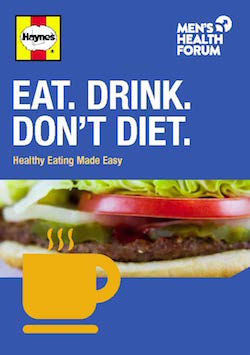Ben: 'I was very hard-working. Probably too much.'

About four years ago I suddenly noticed I was breathless and urinating all the time. I didn’t have my energy.
I went to the GP a couple of times. They said an ear infection or maybe the flu. Eventually, after three appointments, I was sent for a blood test. Afterwards, I drove to work and, as I sat down to my sandwich and fizzy drink for lunch, I got a call saying my blood sugar was so high I should go to my nearest hospital. At the hospital, they started showing me how to inject myself.
It was 4.30pm Friday. I threw up. It was such a shock.
By the time of diagnosis, I’d lost a lot of weight. And, shortly after, the pressure in my eye caused me to lose my sight for about four weeks. The nurse asked me to read the letters on the board and I said ‘what board?’ It was very scary.
Looking back, had I left it any longer, my first symptom would have been losing my sight or collapsing in a coma.
Starting to inject myself was, I should imagine, like going cold turkey. I was sweating. I couldn’t see much or do much.
I was very hard-working. Probably too much. 50 to 60 hours a week. Grabbing a drive-through meal, no exercise. I covered the whole of southern England. A lot of travel. Now I carve out time for myself to eat a proper lunch, walk the dog and swim, ride the bike or go to the gym.
I keep my weight in check and watch what I eat. I try to get lots of fruit and greens (spinach, watercress, avocados). Oats. Oily fish. A bit of red meat here and there. I count carbs carefully. I use the app on my phone to check everything.
I must prick my fingers 6-7 times a day. You need to be careful of bruised fingers. You don’t want to ruin the ends of your fingers in case one day you lose your sight. They would be very important then.
They lent me a constant glucose monitoring (CGM) device when I did a 100-mile hike. The readings showed I was having a lot of hypos at night. It turns out my diabetes is not 100% type 1. I still produce some of my own insulin but in a sporadic way and that was causing the problem. If the pancreas has a spurt, it means I can suddenly feel very dizzy and have low sugar. It took two years to get them to do the test that proved this.
Then I had to battle with the local NHS Clinical Commissioning Group to get a CGM.
My advice is that if you don’t feel right, keep going back. GPs aren’t infallible. You’re not wasting anyone’s time.
- Pic shows Ben (left) with his mother and brother
| This article reflects the experience of the individual. It is not health information from the Men's Health Forum under the terms of the NHS England Information Standard. |
|
The Men’s Health Forum need your support It’s tough for men to ask for help but if you don’t ask when you need it, things generally only get worse. So we’re asking. In the UK, one man in five dies before the age of 65. If we had health policies and services that better reflected the needs of the whole population, it might not be like that. But it is. Policies and services and indeed men have been like this for a long time and they don’t change overnight just because we want them to. It’s true that the UK’s men don’t have it bad compared to some other groups. We’re not asking you to ‘feel sorry’ for men or put them first. We’re talking here about something more complicated, something that falls outside the traditional charity fund-raising model of ‘doing something for those less fortunate than ourselves’. That model raises money but it seldom changes much. We’re talking about changing the way we look at the world. There is nothing inevitable about premature male death. Services accessible to all, a population better informed. These would benefit everyone - rich and poor, young and old, male and female - and that’s what we’re campaigning for. We’re not asking you to look at images of pity, we’re just asking you to look around at the society you live in, at the men you know and at the families with sons, fathers and grandads missing. Here’s our fund-raising page - please chip in if you can. |



